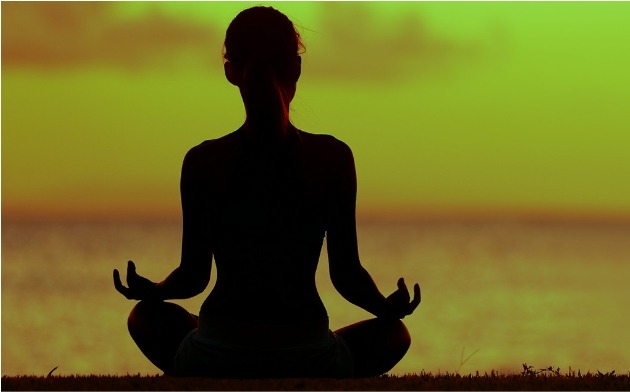
Meditation for stress relief is a practice that has been around for centuries and has been gaining more popularity in recent years. It is an effective way to reduce stress, improve mental health, and increase overall wellbeing. In this article, we will discuss the many benefits of practicing meditation for stress relief.
Meditation is a technique that involves focusing your attention on a particular object, sound, or mantra. The goal is to clear your mind of distracting thoughts and achieve a state of relaxation and calmness. It can be done anywhere, at any time, and requires nothing more than a quiet space and a few minutes of your time.
One of the most significant benefits of practicing meditation is stress relief. When we are under stress, our bodies release cortisol, a hormone that is responsible for the “fight or flight” response. Cortisol can be beneficial in certain situations, but when we are constantly stressed, the elevated cortisol levels can have negative effects on our health, including an increased risk of heart disease, depression, and anxiety.
Meditation can help to reduce cortisol levels in the body, allowing us to feel more relaxed and less stressed. Studies have shown that regular meditation can help to reduce symptoms of anxiety and depression, improve sleep quality, and increase feelings of well-being and happiness.
Meditation can also improve our ability to manage stress. When we meditate, we learn to focus our attention on the present moment, rather than worrying about the past or future. This can help us to become more aware of our thoughts and emotions and to better understand the sources of our stress. By developing this awareness, we can learn to manage our stress more effectively and make healthier choices.
In addition to reducing stress, meditation can also have physical benefits. It has been shown to lower blood pressure, improve digestion, and boost the immune system. Regular meditation can also improve our ability to focus and concentrate, which can be beneficial in our work and personal lives.
There are many different types of meditation, and finding the right one for you can be a personal journey. Some people prefer guided meditation, which involves listening to an instructor who provides instructions and visualization techniques to help you focus. Others prefer to meditate on their own, using a mantra or focusing on their breath.
One of the best things about meditation is that it is accessible to anyone, regardless of their age, physical ability, or religious beliefs. You do not need any special equipment or training to begin practicing meditation, and you can start with just a few minutes a day.
If you are interested in trying meditation, there are many resources available to help you get started. There are apps, videos, and books that can provide instruction and guidance, and there are also meditation classes and retreats that can offer more intensive instruction and support.
Types of Meditation for Stress Relief
1. Mindfulness Meditation for Stress Relief
This type of meditation is one of the most popular and widely practiced. Mindfulness meditation involves paying attention to the present moment without judgment. You can do this by focusing on your breath or a particular sensation in your body, and then gently bringing your mind back to that focal point whenever it wanders. The goal is to become more aware of your thoughts and emotions without becoming overwhelmed by them, which can help reduce stress and anxiety.
2. Transcendental Meditation for Stress Relief
Transcendental meditation is a form of mantra meditation that involves repeating a particular sound or word in order to achieve a deep state of relaxation. Practitioners of transcendental meditation believe that this technique can help reduce stress, improve mental clarity, and even promote spiritual growth.
3. Yoga Meditation for Stress Relief
Yoga meditation combines physical postures (asanas) with breathing exercises (pranayama) and meditation to create a holistic practice that can help reduce stress and promote relaxation. Yoga meditation can also help improve flexibility, balance, and overall physical health.
4. Loving-Kindness Meditation for Stress Relief
Loving-kindness meditation involves focusing on feelings of compassion and goodwill towards yourself and others. Practitioners of loving-kindness meditation typically repeat a series of phrases, such as “may I be happy, may I be healthy, may I be safe,” while visualizing themselves and others experiencing these positive emotions.
5. Body Scan Meditation for Stress Relief
In this type of meditation, you focus on each part of your body, starting from the feet and working your way up to the head. This technique can help increase body awareness and reduce tension in the muscles, which can help promote relaxation and reduce stress.
6. Chakra Meditation for Stress Relief
Chakra meditation involves focusing on the seven energy centers in the body, known as chakras. Practitioners of chakra meditation use visualization techniques to focus on each chakra, which can help balance the body’s energy and promote relaxation.
7. Walking Meditation for Stress Relief
Walking meditation involves moving mindfully and deliberately, while focusing on each step and the sensations in the body. This type of meditation can be a great way to reduce stress while getting some physical exercise at the same time.
Each of these types of meditation offers unique benefits, and there is no right or wrong way to meditate. It’s important to experiment with different techniques and find the ones that work best for you. With regular practice, meditation can help reduce stress, improve focus, and promote overall well-being.
Meditation is an effective and accessible way to reduce stress and improve overall wellbeing. By reducing cortisol levels in the body, improving our ability to manage stress, and providing physical and mental benefits, meditation can be a valuable tool in our daily lives. Whether you are new to meditation or an experienced practitioner, incorporating meditation into your daily routine can provide numerous benefits for your health and wellbeing.
